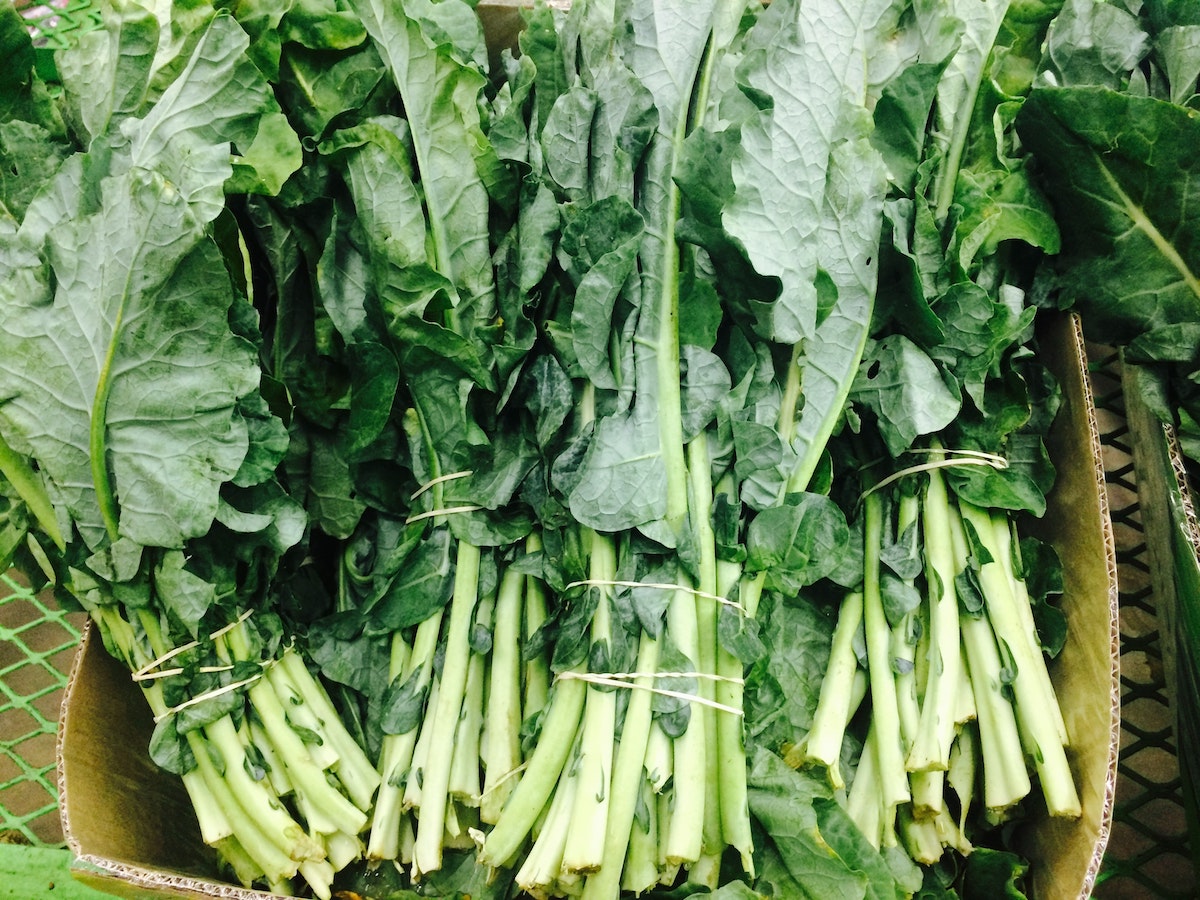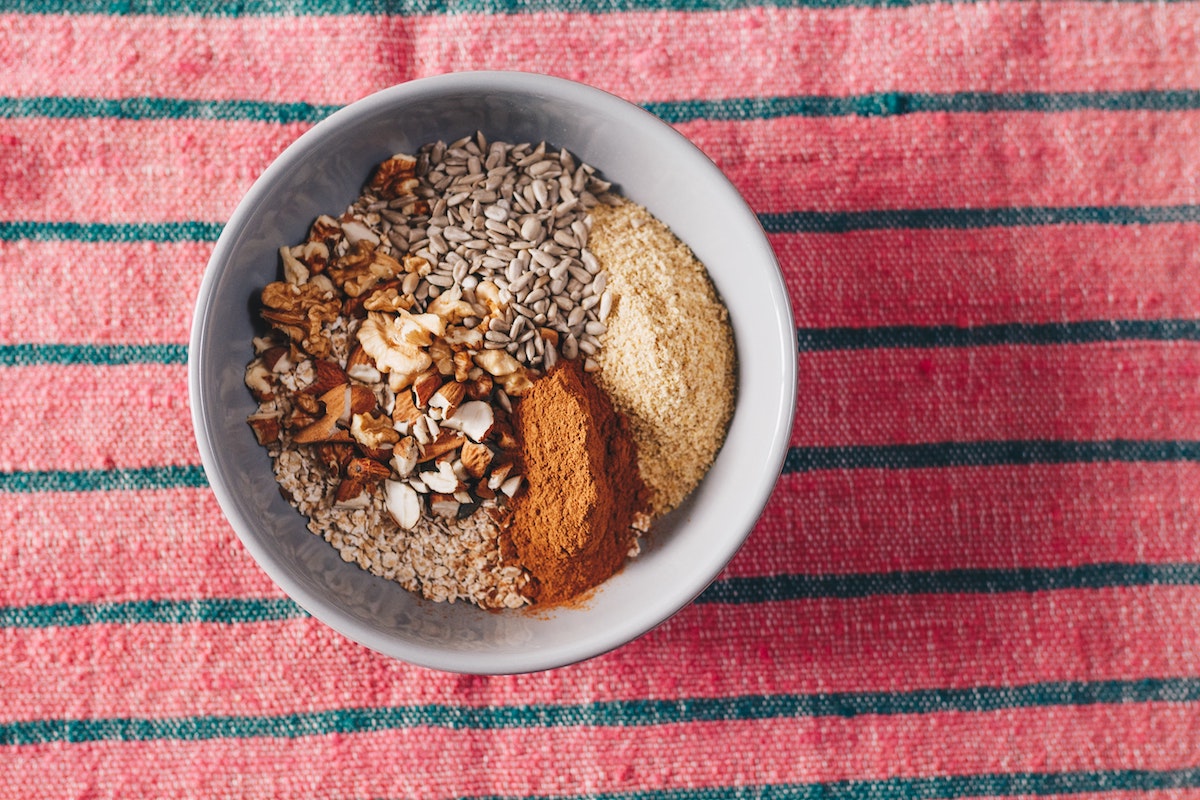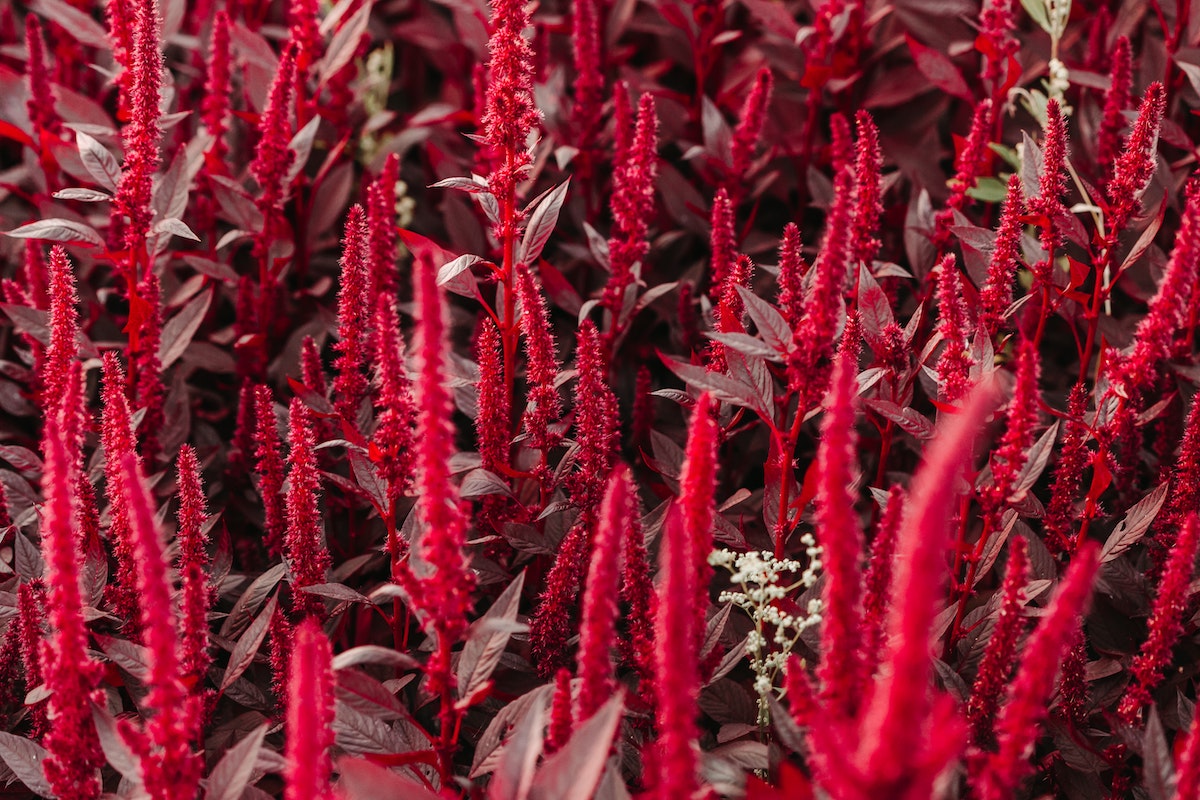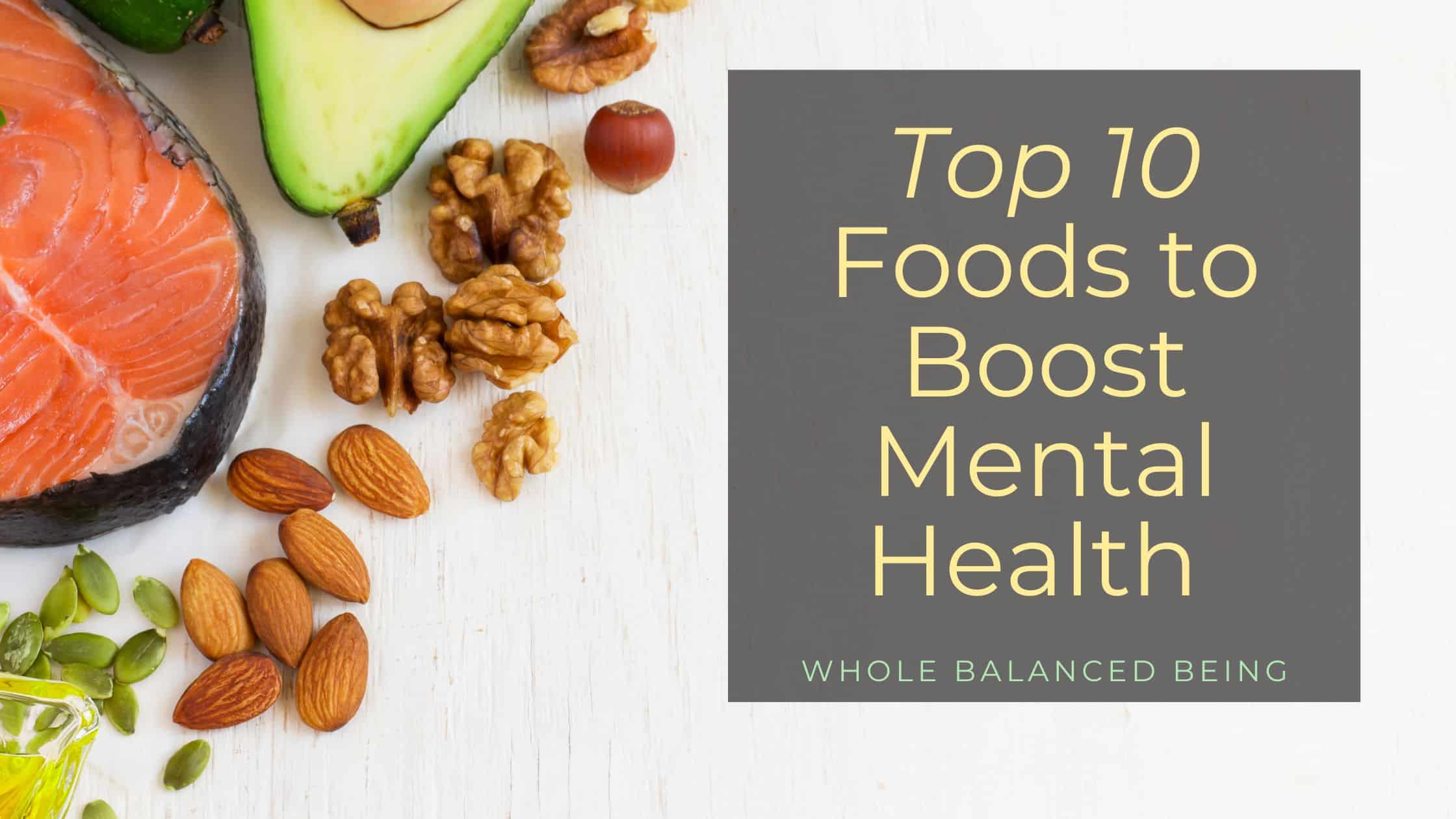In today’s fast-paced and demanding world, taking care of our mental health has become more crucial than ever. While stress, anxiety, and mood swings are natural aspects of life, there’s a growing realization that our diet plays a significant role in our mental and brain health. Not only should we be mindful of the foods we eat to nourish our bodies, we must also be mindful of the foods that nourish our minds.
Our brain is complex: it needs a variety of nutrients for it to work properly. If we do not get enough of these nutrients, it can lead to a multitude of issues such as an increased risk of anxiety, depression, and burnout. If we do not feed our brain, our body cannot work right.
In this blog post, we will take a look at the top 10 foods for mental health that will keep our minds strong and healthy. These are foods that are easy to find, easy to cook, and can be pretty cheap to buy! I will also include plenty of recipes that are full of nutrients and many of the other foods on this list.
Berries: An Antioxidant Powerhouse

Berries are a perfect little fruit: they are small, packed with flavor, and full of incredible nutrients important for the health of our minds and brains.
Blueberries stand out as potent brain boosters, thanks to their high levels of flavonoids. Strawberries, raspberries, and blackberries contain anthocyanins, which have been shown to reduce inflammation in the brain. Not only do berries enhance brain health, but they help in promoting positive moods and reducing stress levels.
When buying berries, the most cost-friendly option is to buy them frozen. Frozen foods are generally packed when they are at their ripest, so they always have good flavor. Be sure to wash fresh berries (even if they are organic) before eating since they are often sprayed with pesticides.
Recipe Ideas
High-Quality Proteins: Animal and Plant-based
Protein is an essential nutrient that serves as a building block for various systems in our body. It helps build our muscles, organs, enzymes, hormones, and other chemicals in our body. We also need protein to build and develop neurotransmitters in our brains.
Neurotransmitters help neurons in our brain to communicate with each other to perform simple functions in our bodies, from thinking about what to make for dinner to initiating our muscles to run during a workout. Eating enough protein in our diet helps to keep our brains strong, especially as we age.
Proteins are also high in other nutrients like B vitamins, nootropics, iron, zinc, and magnesium. All of these nutrients are important to make sure our brain is functioning normally.
Animal Protein vs. Plant Protein: Which is better?
This is a common question where answers are heavily debated, whether it is within the medical community or on social media. It is up to you to decide on which option is more accessible, affordable, closer to your food culture, and if you enjoy the taste.
Animal Proteins
For animal-based proteins, I recommend sticking to foods that are minimally processed (in their most natural state after butchering), wild (if buying game or seafood), and grass-fed for as long as possible since they will be richer in nutrients.

Here are some animal proteins you can add to your diet to help boost your brain and mental health:
- Grass-fed beef
- Pastured chicken or turkey
- Wild game like elk, venison, and bison
- Fatty fish (like mentioned earlier)
- Wild shellfish
- Organs like liver, heart, or kidney
Recipe Ideas
- Bison Meatballs
- Chicken Chile Verde
- Liver Dumpling Soup – a Classic Czech recipe and one of my comfort foods!
Plant-based Proteins
For plant-based proteins, I also recommend sticking to sources that are minimally processed as they will have most of their nutrients intact. Keep in mind that plant-based proteins (except tofu) are not a “complete protein”, meaning they need to be paired with other plant proteins to meet all of your essential amino acid needs.
Here are some animal proteins you can add to your diet to help boost your brain and mental health:
- Organic tofu and tempeh
- Beans
- Lentils
- Seitan
- Edamame

Recipe Ideas
Salmon: An Omega-3 Powerhouse
We have all heard about salmon and omega-3 fats being good for us. The question is: Why?

Salmon is rich in omega-3 fatty acids, specifically docosahexaenoic acid (DHA) and eicosapentaenoic acid (EPA). These essential fatty acids are essential for developing our brain cell membranes, promoting efficient communication between neurons, and enhancing overall brain performance.
The anti-inflammatory properties of omega-3s can aid in protecting the brain from oxidative stress, potentially reducing the risk of age-related cognitive decline. Research has shown that eating omega-3-rich foods like salmon can have a positive impact on mental health, reducing the risk of depression, anxiety, and mood disorders.
Recipe Ideas
Dark Leafy Greens and Vegetables: Nurturing Brain Nutrients
Mom was right, we DO need to eat our greens! Dark vegetables and leafy greens like spinach, kale, broccoli, and Swiss chard boast an impressive variety of nutrients that offer substantial benefits for brain and mental health.

Folate is a B vitamin that is essential for neurotransmitter synthesis, which helps promote cognitive function and mental clarity. These foods are also a great plant-based source of iron which is important for maintaining optimal oxygen levels in the brain, bolstering focus and memory retention. Rich in antioxidants and anti-inflammatory compounds, dark leafy greens and vegetables also help protect brain cells from oxidative stress and may reduce the risk of neurodegenerative diseases.
In addition to vitamins and minerals, dark leafy greens and vegetables are a great source of fiber that supports a healthy gut, promoting a strong gut-brain connection that can positively influence mood and emotional well-being.
If you are not used to eating these types of foods, don’t worry! There are plenty of recipes that help disguise and make these strong-flavored foods taste delicious. Here are some great recipes to try below.
Recipe Ideas
- Kale Caesar Salad with Crispy Chickpeas
- Beginner Green Machine Smoothie
- Sauteed Spinach with Garlic
- Best Cream of Broccoli Soup
Nuts and Seeds: Nature’s Cognitive Boosters
These foods are bite-sized powerhouses packed with a variety of vitamins and minerals that are essential for our brain and mental well-being. Nuts like almonds, walnuts, and pistachios, as well as seeds like flax seeds, chia seeds, and pumpkin seeds are rich in omega-3 fatty acids and monounsaturated fats. As mentioned previously, fats are essential for keeping a healthy brain.
Nuts and seeds are also rich in antioxidants and vitamin E, which help protect brain cells from oxidative stress, potentially reducing the risk of cognitive decline. Additionally, their magnesium content can aid in relaxation and stress reduction, helping you to boost your mood!

Recipe Ideas
Fermented Foods: Gut-Brain Axis Harmony
We all know that fermented foods are important in maintaining a healthy digestive system. But did you know that this also helps to boost our mental and brain health?

Fermentation is a natural process that creates probiotics, beneficial live bacteria, we need in our bodies to help with various functions such as digestion and boosting immunity. The interaction between our gut health and brain health is also known as the gut-brain axis, meaning our gut can influence our mental state.
Fermented foods such as yogurt, kimchi, sauerkraut, kefir, and miso are rich in probiotics, which play a significant role in maintaining a balanced gut microbiome. A healthy gut microbiome, in turn, can positively impact mood, reduce symptoms of anxiety and depression, and boost brain function. The bacteria from fermented foods also aid in the absorption of nutrients that are essential for brain health, such as B vitamins and magnesium.
This link in our gut-brain axis has led to research on psychobiotics: using specific strains and amounts of bacteria to be ingested to help manage our mental health. While there is more research to be done, we can look to the future to see supplements and foods that contain the perfect formula of bacteria we need for a balanced gut and a healthy mind.
Recipe Ideas
- Chia Kefir Pudding
- Miso Salad Dressing – my personal favorite!
- Kimchi Fried Rice
Dark Chocolate: Indulgence for Mental Well-Being
Dark chocolate is a delicious and healthy treat that contains a rich profile of nutrients that can work wonders for our brain and mental well-being. It is a powerful source of flavonoids, antioxidants that support blood flow to the brain, promoting enhanced cognitive function and memory. This is important in stimulating the production of endorphins, our “feel-good” hormones, which can lift our mood and reduce stress levels.
Dark chocolate also contains a compound called phenylethylamine, which acts as a mood enhancer, similar to the feeling of falling in love. Two other compounds, theobromine and caffeine, can provide a mild boost in alertness and concentration. So don’t feel guilty the next time you have dark chocolate: it’s a tasty treat that is good for you!

Recipe Ideas
- Chocolate Covered Pecans
- Vegan Peanut Butter Oatmeal Chocolate Chip Cookies
- Almond Flour Banana Muffins (Double Chocolate!)
Whole Grains: Fueling the Mind
Whole grains are one of the most underrated and “controversial” foods. The fact is, you cannot deny the science showing these foods are jam-packed with nutrients. Whole grains, such as oats, brown rice, quinoa, farro, and amaranth are a rich source of complex carbohydrates, fiber, and essential vitamins and minerals.
When it comes to the brain, these foods provide a steady supply of energy, supporting concentration, focus, and brain power throughout the day. The slow release of glucose from complex carbohydrates helps maintain stable blood sugar levels, preventing energy crashes and mood swings.
Additionally, the abundant fiber content supports a healthy gut, supporting the gut-brain axis and positively influencing our mood and emotions. Whole grains boast an array of B vitamins, including folate, which are essential for neurotransmitter synthesis and can play a role in reducing the risk of depression and cognitive decline.

Recipe Ideas
Avocado: Creamy Brain Food
We have all seen SO many pictures on social media of us Californians enjoying our favorite avocado toast. So why has this fatty fruit become so popular?

Avocados are packed with many nutrients that make them one of my favorite foods for our brain and mental well-being. They are full of monounsaturated fats which make them incredibly tasty and help support blood flow to the brain, which can help boost memory. Vitamin E, another previously mentioned nutrient, is a strong antioxidant that protects brain cells from oxidative stress, keeping our brains strong and healthy.
Avocado is also a great source of folate, a B vitamin important for neurotransmitter production, supporting mood regulation and emotional balance. Finally, avocados are a rich source of magnesium, which can help reduce stress and promote relaxation.
Recipe Ideas
- 4-Ingredient Guacamole
- Island Green Tropical Smoothie
- Avocado Toast Toppings (6 Ways)
- Shrimp Ceviche with Avocado
Turmeric: Spicing Up Your Mental Health
Turmeric has been celebrated for centuries in traditional medicine as it has remarkable benefits for brain and mental health. The main active compound in turmeric, curcumin, is a powerful antioxidant with potent anti-inflammatory properties. These properties are key to protecting brain cells from oxidative stress and reducing neuroinflammation, which has shown in studies to help slow cognitive conditions such as dementia
Curcumin’s neuroprotective effects support overall cognitive function and improve memory. Research shows that turmeric has the potential to help in managing symptoms of depression and anxiety, as it may boost serotonin and dopamine levels in the brain.

Recipe Ideas
- Sweet Potato, Coconut, and Chili Soup
- Turmeric Black Pepper Chicken with Asparagus
- Curry Cauliflower Soup
- Turmeric Latte (Golden Milk)
Summary
These are the healthy top 10 foods for our mental health. They contain various compounds, vitamins, and minerals that help to improve cognitive function, boost memory, and provide many other benefits for our brain and mental health:
- Berry
- Protein
- Salmon
- Dark Leafy Greens and Vegetables
- Nuts and Seeds
- Fermented Foods
- Dark Chocolate
- Whole Grains
- Avocado
- Turmeric
It’s amazing how important our diets are for not only our physical health but for our mental health as well.
Ready to add some of these foods to your diet? Try one of the recipes linked in this article, and let me know on Instagram @burnout.nutritonist and @whole.balanced.being which one is your favorite!


+ for the post
thanks, interesting read